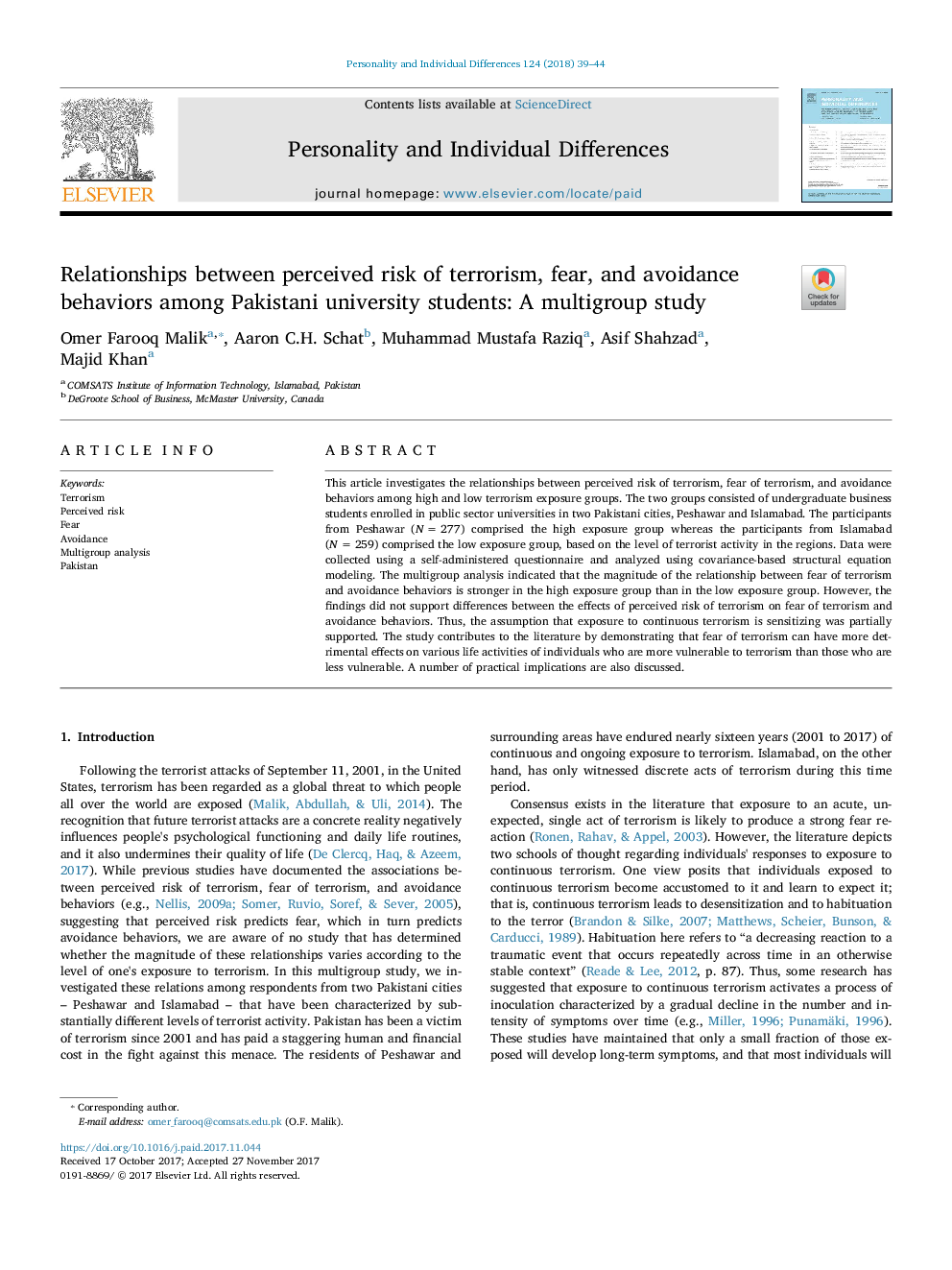ترجمه فارسی عنوان مقاله
روابط بین درک خطر تروریسم، ترس و رفتارهای اجتناب در میان دانشجویان دانشگاه های پاکستان: یک مطالعه چند گروهی
عنوان انگلیسی
Relationships between perceived risk of terrorism, fear, and avoidance behaviors among Pakistani university students: A multigroup study
| کد مقاله | سال انتشار | تعداد صفحات مقاله انگلیسی |
|---|---|---|
| 160553 | 2018 | 6 صفحه PDF |
منبع

Publisher : Elsevier - Science Direct (الزویر - ساینس دایرکت)
Journal : Personality and Individual Differences, Volume 124, 1 April 2018, Pages 39-44
ترجمه کلمات کلیدی
تروریسم، ریسک در نظر گرفته شده، ترس اجتناب از، تجزیه و تحلیل چندگانه، پاکستان،
کلمات کلیدی انگلیسی
Terrorism; Perceived risk; Fear; Avoidance; Multigroup analysis; Pakistan;

